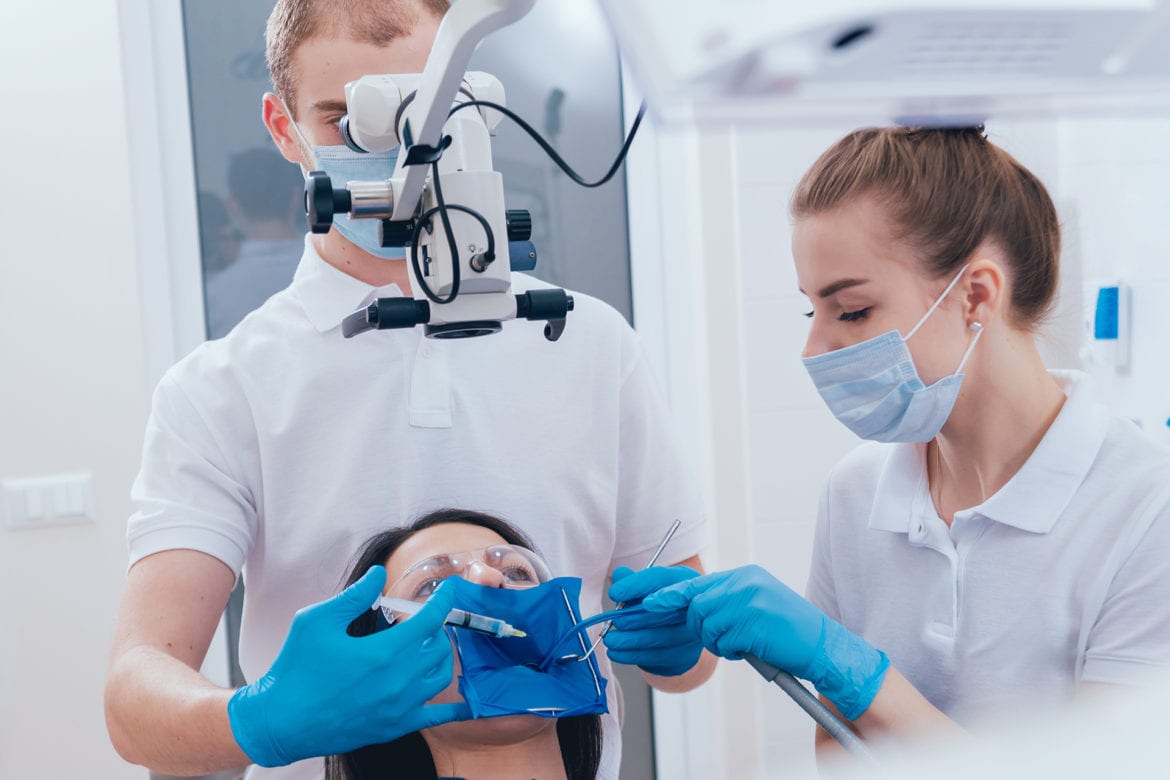Multiple sclerosis can affect many areas of your daily life, including dental care.
Symptoms of multiple sclerosis and the medications you take for these symptoms can lead to an increased need for dental visits and tooth extractions.
Fortunately, there are steps you can take to make managing your dental health easier.
In this article, we take a look at how multiple sclerosis affects dental care and tooth extractions and what you can do to address these challenges.
How does multiple sclerosis affect dental care?
Multiple sclerosis can affect your daily dental care and the dental care you receive from professionals.
Dental hygiene challenges
Multiple sclerosis can make it difficult to keep up with your dental hygiene. Symptoms of multiple sclerosis may cause:
- tremors that make holding a toothbrush and brushing a challenge
- a weakened grip that can make holding a toothbrush difficult
- fatigue that can make daily tasks overwhelming
- facial soreness and numbness that make daily brushing and flossing painful
- depression and other mood changes that can affect your motivation
Medication challenges
Additionally, people who have multiple sclerosis are often prescribed medications that can cause dry mouth and sugary dietary supplements that can lead to plaque buildup. These medications and supplements can cause unwanted side effects, like tooth decay and gum disease.
It can be difficult to manage these side effects while you’re managing the other symptoms of multiple sclerosis.
Dental care challenges
People with multiple sclerosis might also face challenges at the dentist.
Not all dental professionals are used to treating people with multiple sclerosis. Often, their offices are not set up for people with multiple sclerosis and might have dental chairs that are inaccessible or painful to sit in for long stretches of time.
Other common dental care challenges for people with multiple sclerosis include:
- an inability to keep your head still and in the correct position during a dental exam
- respiratory issues that make it difficult to take deep breaths while fully reclined in a dental chair
- dental pain and numbness that makes it hard to hold the mouth open without assistance
How does multiple sclerosis affect dental extractions?
Regular dental visits can be a challenge for people with multiple sclerosis. Visits for procedures such as dental extractions can add to those challenges.
Tooth extractions require longer visits and can add to the pain and difficulty of standard dental work. The exact challenges and accommodations depend on the patient, the severity of their symptoms, and the number of extractions needed.
Common steps a dentist will take when a patient has multiple sclerosis include:
- taking breaks in the procedure every 5 to 10 minutes to ensure comfort
- using a mouth prop so that the patient does not have to hold their mouth open on their own
- using specialized cushions or pads on the dental chair
- coordinating with the patient’s primary care doctor about medication doses on the day of the procedure
Over time, multiple sclerosis can weaken the gums. If your gums are weak and multiple sclerosis has made dental health challenging, a dentist might recommend dental implants as a solution for this issue.
Dental implants are more permanent than dentures and are often considered a better option for people with multiple sclerosis.
Consult with both your doctor and dentist for advice on how to proceed with a dental extraction. A dentist can tailor an extraction procedure to meet your individual needs.

